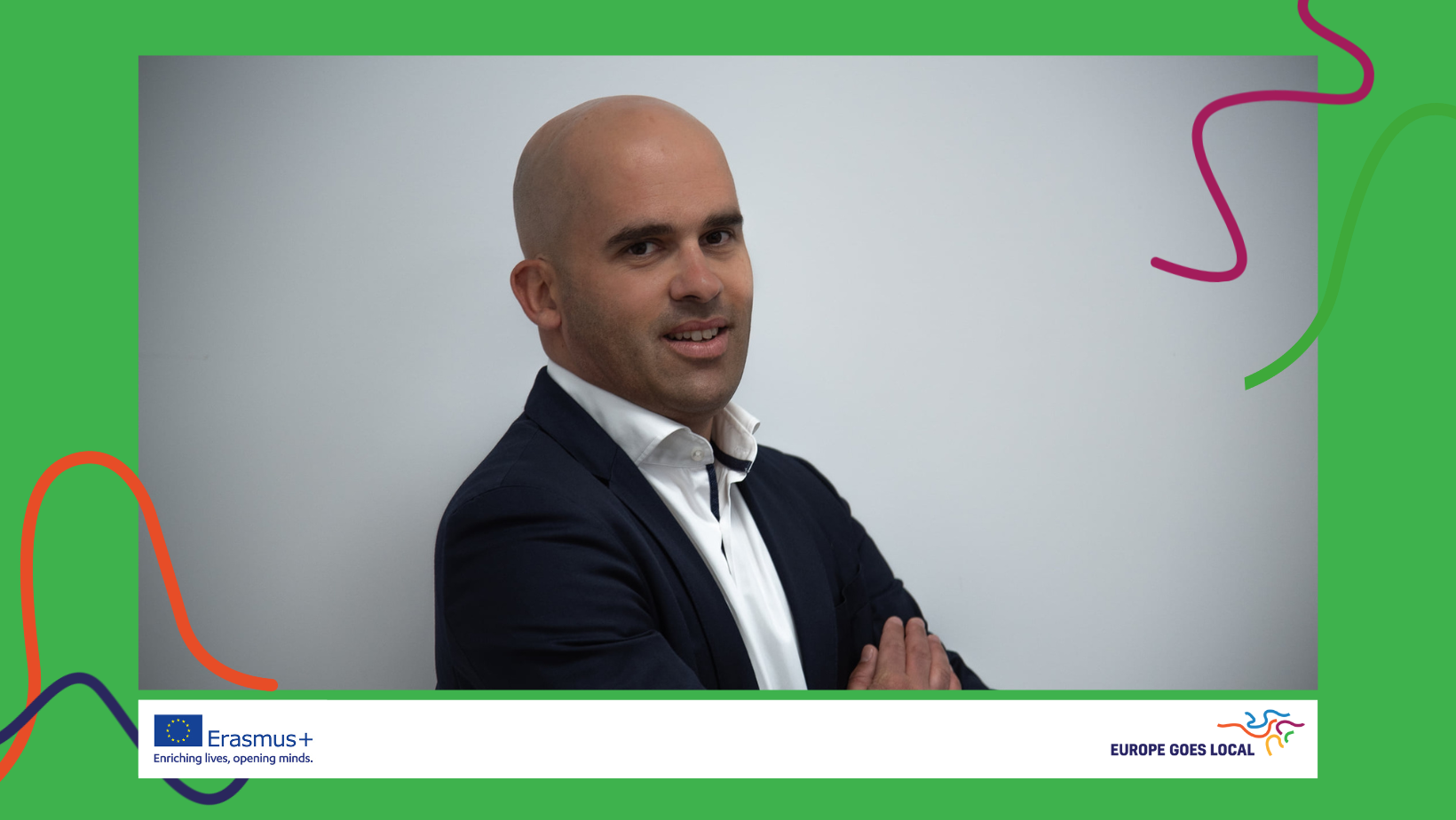
We’ve interviewed Gil Nunes on the Gaia Participatory Budget. Now, we will get to know him in this episode of Faces of EGL. Gil is a Gaia City Council youth worker, a passionate writer and a sport journalist. Gil was born in Gaia (Portugal) and is happy to be working in his home country.
What Gil enjoys about his work as a youth worker is to see that young people are eager to tackle important topics like the environment and sustainability. Gil loves it when they share their concerns and when they deliver impactful projects. This was the case with the Animal Park funded by the Gaia Participatory Budget for example, the first wildlife park in Gaia. This was important for the community, and aims to further increase the effect of the project. Gil cares about social impact, not only in Portugal and Europe, but also by further expanding positive effects with good practices in Africa for example.
Gil Nunes is passionate about working with young people, but also about connecting generations, from children to the elderly. He’s enthusiastic when he’s able to see how everyone contributes to the community and beyond.
Outside of youth work, Gil is a writer. He wrote five novels and is working on the next one. Gil started writing short stories in literary cafes when he was 20. He published his first novel in 2010 and his most popular book in 2013. Monty Python and Agatha Christie were influential in his writing style.
In addition to writing, Gil’s big passion is football and he trained until the age of 25. Afterwards, he became a sport journalist. Gil has a weekly column in one of the largest Portuguese newspapers and also writes as a correspondent for several newspapers abroad.
Gil’s message is to remain curious, keep an open mind, and continue to learn from everyone and everywhere. He believes we are fortunate now to be able to get information quickly. He also feels lucky to be working in youth work. He finds it a field where you get a lot of diverse knowledge that prepares you well for life, gives you plenty of life tools, and teaches you the importance of connection and community values.
You can read the whole article about Gaia Participatory Budgeting here.